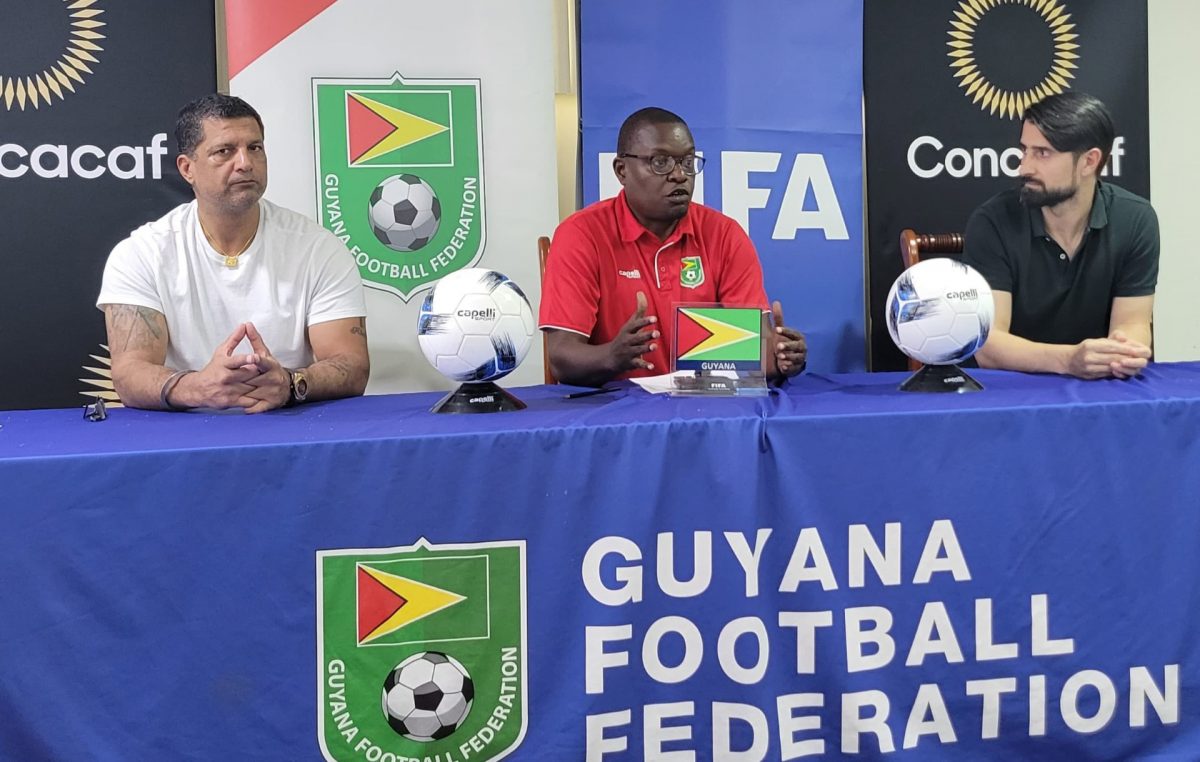The Guyana Football Federation (GFF), in collaboration with FIFA, launched its High Performance Programme on Friday, which will be supervised by former Spanish international and UEFA Pro Licence coach Rubén de la Red.
This was revealed at a press conference held at the federation’s Section K Campbellville headquarters. The Technical Director of the GFF, Bryan Joseph, revealed that the federation has been approved to be part of the FIFA Talent Development Scheme, which is a high-performance initiative geared towards developing the best talents in a nation.
In October 2023, GFF and Racing Madrid FC of Spain signed a Memorandum of Understanding. This paved the way for the hiring of de la Red, who meets the FIFA requirements for the post. The Spaniard will focus on technical training in the programme that is expected to feature 40 players, of whom 24 will comprise a priority cadre.
An initial subsidy of US$50,000 is expected to be provided by FIFA, which will also fund the stay of de la Red. Funding for the programme is also projected to increase as it evolves.
Presently, the programme encompasses players from Georgetown, the East Coast, and West Demerara who train three times a week. Individuals from Linden, Bartica, and Berbice feature during the weekend sessions.
Joseph further stated, “We don’t have expertise in high-performance coaching, and FIFA has afforded us that opportunity. From 2025, there will be the U-17 World Cup, and it means every year Guyana will have a chance to qualify for the U-17 World Cup, and this programme is the next step to our Academy Training Centre.”
According to Joseph, the local youth structure will be altered to mirror the European model, noting that Caribbean players, based on a FIFA study, only play an average of 10–12 matches per year, which is far below the European average of 40 per annum.
He noted that the programme’s main issue will be the incorporation of the hinterland players, noting that a partnership with the Ministry of Education will be critical in remedying this conundrum.
Joseph said that the ideal player training apparatus involves four to five sessions and a match weekly, noting that “the biggest challenge is not the distance but the schooling.”
He noted that the GFF would have to explore options for the creation of a hybrid learning model that would allow players to train and be schooled while encamped at the federation’s national training centre.






